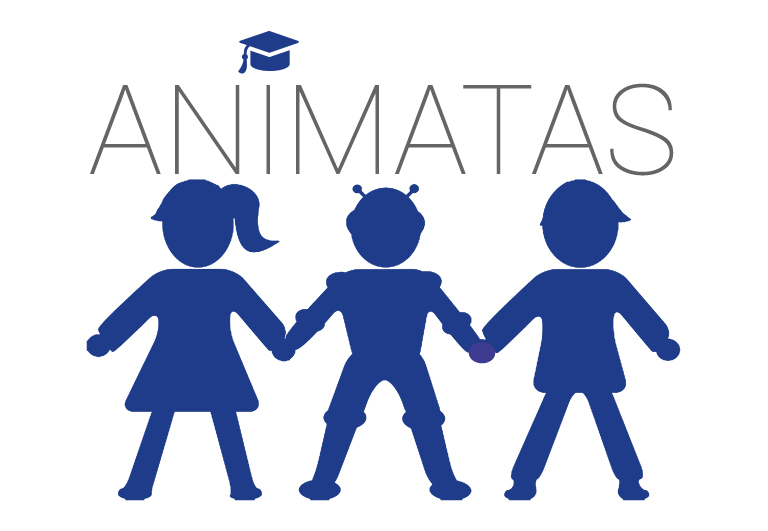As the field of child-robot interaction (CRI) research matures, and in light of the recent replication crisis in psychology, it is timely to tackle several important methodological challenges. Notably, studies on child-robot relationship formation face issues regarding the conceptualization and operationalization of this complex, comprehensive construct. In addressing these challenges, increased interdisciplinary collaboration is of vital importance.
Interdisciplinary collaboration and contributions are a central aim of this workshop, such that we especially encourage, next to classic CRI user studies (i.e., quantitative empirical works), the submission of qualitative contributions as well as non-empirical works (e.g., ethical reflections on the assessment of relationship formation, design considerations). As the workshop is intended as a platform for discussion to improve research methodology and receive high-quality peer feedback, we will also accept proposals for planned studies.
Important dates
February 12 (extended) Submission deadlineFebruary 24 Acceptance notificationMarch 1 Publication abstractsMarch 8 Workshop

Outcomes
During the workshop, participants engaged in two rounds of breakout room discussions; first, to identity challenges in the design, measurement, and ethics of studies on child-robot relationship formation, followed by brainstorming of solutions. Across these discussions, several common themes arose. First, the importance of long-term interaction repeatedly emerged as one of the biggest obstacles currently facing the CRI community. Second, the need for robotic systems which are both robust to child interactions and transparent in terms of capabilities was highlighted (including the relative benefits and costs of Wizard of Oz vs autonomous systems). Third, the significance of involving children (and other relevant stakeholders) throughout the experimental process was emphasised. Finally, suggestions were made for how to facilitate multidisciplinary collaborations to improve accessibility and visibility of research findings. These discussions highlight how CRI researchers can unite to address challenges which are present throughout the field. We hope that some of the ideas fostered in this workshop will encourage both current and future CRI researchers to think critically about the design, measurement, and ethical implications of child-robot-interaction, and work together towards developing and sharing resources which can benefit the community as a whole.
Want to know more about the outcomes of this workshop? Visit the dedicated Outcomes page.
Participation
You can now register to participate with the workshop without submitting an abstract. Please note that this form is meant for the organizers to prepare the workshop. You need to register through the official HRI channels to make your registration definitive.
The workshop will contain a number of break-out sessions centered around discussing challenges and solutions. The challenges that are included are primarily those identified by the authors of the accepted abstracts. In the registration form you can submit your own challenges. This helps us to match you to people with similar challenges and to potentially identify new ones.
Accepted abstracts
- Frauke Zeller et al., Ethical Frameworks for Artificial Intelligence (AI) and Social Robots in Children’s Healthcare Experiences
- Aida Amirova and Anara Sandygulova, Reciprocal Peer Tutoring in Child-Robot Interaction
- Ameer Helmi and Naomi T. Fitter, Lights, Camera, Action! Evaluating Robot Reward Behaviors in Free Play with Children
- Safinah Ali et al., Building Child-Robot Collaborative Relationships in Creative Interactions
- Jean Baratgin et al., “Mentor-Child and Naive-Pupil-Robot” paradigm to study children’s cognitive and social development
Program
Submission
Please read below what you need to know before you submit your extended abstract.
Topics
Potential topics for submission include, but are not limited to:
- Quantitative and/or qualitative research methodology to assess child-robot relationship formation;
- Theoretical reflections on the conceptualization and/or operationalization of relationship formation;
- Ethical reflections on settings and methods in/by which to assess child-robot relationship formation;
- Design and technical implementation (WoZ, autonomous, or semi-autonomous) of robot systems and CRI scenarios.
Format
Participants are invited to submit a 2-page extended abstract (following the ACM/IEEE formatting guidelines) on the central topic of child-robot relationship formation, including a reflection on key challenges in assessing the construct (either from an empirical or theoretical/ethical viewpoint). Accepted submissions will be published in advance on the workshop website, which participants will be asked to read and prepare questions / discussion points for the breakout sessions.
During workshop
This half-day workshop aims to bring together CRI researchers and stakeholders across disciplines to discuss qualitative and quantitative methods that can be used to capture concepts relevant to the process of child-robot relationship formation. In addition, key issues in the field will be identified and discussed from an interdisciplinary perspective, and potential solutions will be brainstormed.
Register
Don't forget to register for the workshop at the HRI registration page. If your paper is accepted you need this registration, at least for the workshop day(s), to be able to participate.
Want to join the workshop?
Date: March 8th (morning)
Registration is closed.
Invited Speakers
We are very happy to announce that during the workshop, we will have a keynote by Iolanda Leite. Mark Neerincx, Patrícia Alves-Oliveira, and Koen Hindriks will lead the discussions as moderators.

Iolanda Leite
Keynote Speaker
Associate Professor at the KTH Royal Institute of Technology in Sweden

Mark Neerincx
Discussion Moderator
Full Professor of Human-Centered Computing at the Delft University of Technology in the Netherlands
Principal Scientist at TNO
Organizing Committee

Rebecca Stower
Jacobs University, DE
Mike Ligthart
Vrije Universiteit Amsterdam, NL
Caroline van Straten
University of Amsterdam, NL
Natalia Calvo-Barajas
Uppsala University, SE
Ella Velner
University of Twente, NL


 This project has received funding from the European Union’s Horizon 2020 research and innovation programme under grant agreement No 765955
This project has received funding from the European Union’s Horizon 2020 research and innovation programme under grant agreement No 765955 